Below are links to the innovators featured in the Solutions Agenda and other resources related to the eight sustainable development innovations we discussed by the research team.
Index
Food Security

|
- Santropol Roulant uses food-related projects as a vessel for connecting people of various age and cultural groups in collaborative efforts for fostering healthy communities.
- Just Food is an Ottawa-based group that engages in a wide range of project-based initiatives, research, public education and advocacy.
- Food Tank: The Food Think Tank acts an information hub for food innovations and research.
- Sole Food transforms vacant urban land into street farms that grow nutritious foods and employs locals of low-income neighbourhoods.
- Worldwatch Institute Article. Year in Review: 10 Things You Should Know about Food and Agriculture in 2012
- Sustainable Food Whiteboard. Developed by students of the Masters in Environment and Management program at Royal Roads University, this project serves as a virtual hub for projects and ideas on re-localizing food.
- Feeding Nine Billion: A Solution to the Global Food Crisis. An animation featuring Dr. Evan Fraser, Canada Research Chair in Global Human Security, discussing potential solutions to the increasing strain on global food resources.
- Scale: How far did your food travel today?. Created through a partnership between CRC and students of RRU's Professional Communications program, this video examines the scale of our food systems by contrasting small-scale to large-scale.
- Definition of a Sustainable Food System is a compilation of definitions for sustainable food systems, prepared by Prof. Ann Dale for the food security e-Dialogue.
- Resilient Communities is a website that shares information and ideas on how to contribute to community resilience against and independence from exogenous shocks.
- Farmers' Markets and Local Food Systems is a case study created by CRC, looking at local food systems in the Great Victoria Regional District.
- An interactive animation built using ShiftN's systems map on obesity highlighting the systems complexities of nutrition and physical health.
- Food Secure Canada (press release index). A page listing press releases creating Food Secure Canada, a non-profit committed to the food security movement in Canada.
- Food Forward is a Toronto-based initiative focused on educating the public on and advocating for healthy food and communities.
- Local Food Plus (LFP) is a non-profit organization committed to promoting local sustainable food systems through certification programs, public outreach, and network building.
|
Energy
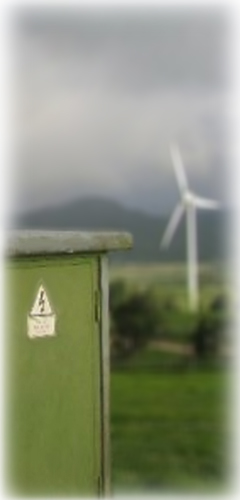
|
- Ottawa Renewable Energy Cooperative (OREC) provides a conduit for local investment in renewable energy by creating opportunities for residents of Ottawa to cooperatively finance, own and receive returns on renewable energy projects.
- Drake Landing Solar Community (DLSC) is located in east part of Okotoks, Alberta, and consists of 52 single-detached residences that use solar energy for space heating.
- Quality Urban Energy Systems of Tomorrow (QUEST) was formed in 2007 to serve as a collaborative network of stakeholders focused on positioning Canada as a leader in the design, development and implementation of Integrated Community Energy Solutions (ICES).
- MC3 case study on Eagle Island describing how this small island community of 31 houses, located just off the shore of the District of West Vancouver, reduced its carbon footprint through home retrofitting.
- Sustainable Energy for All. An initiative launched by the United Nations Secretary-General and guided by his High Level Group that brings together key actors for the purpose of making sustainable energy a reality for everyone by 2030.
- QUEST: Quality Urban Energy Systems of Tomorrow An Integrated Regional District Energy System. A CRC case study on the QUEST initiative.
- OREC: A renewable energy co-operative model. A CRC case study on OREC.
- This is Us: Laura Stachel. This video details the history and work of We Care Solar, an initiative that brings solar energy generated light and power to medical facilities in developing communities.
- International Energy Agency. IEA is an international organization, with 28 countries as current members, that is committed to the development and use of clean, reliable and affordable energy systems.
- The Meeting the Climate Change Challenge (MC3) project. MC3 is research partnership, involving RRU, UBC and SFU, that explores community climate change innovations in BC.
- The Bigger Picture. This animation was created through partnership between Community Research Connections and the University of Alberta, and it examines the relationship between income and carbon footprint.
|
Multi-functional Spaces
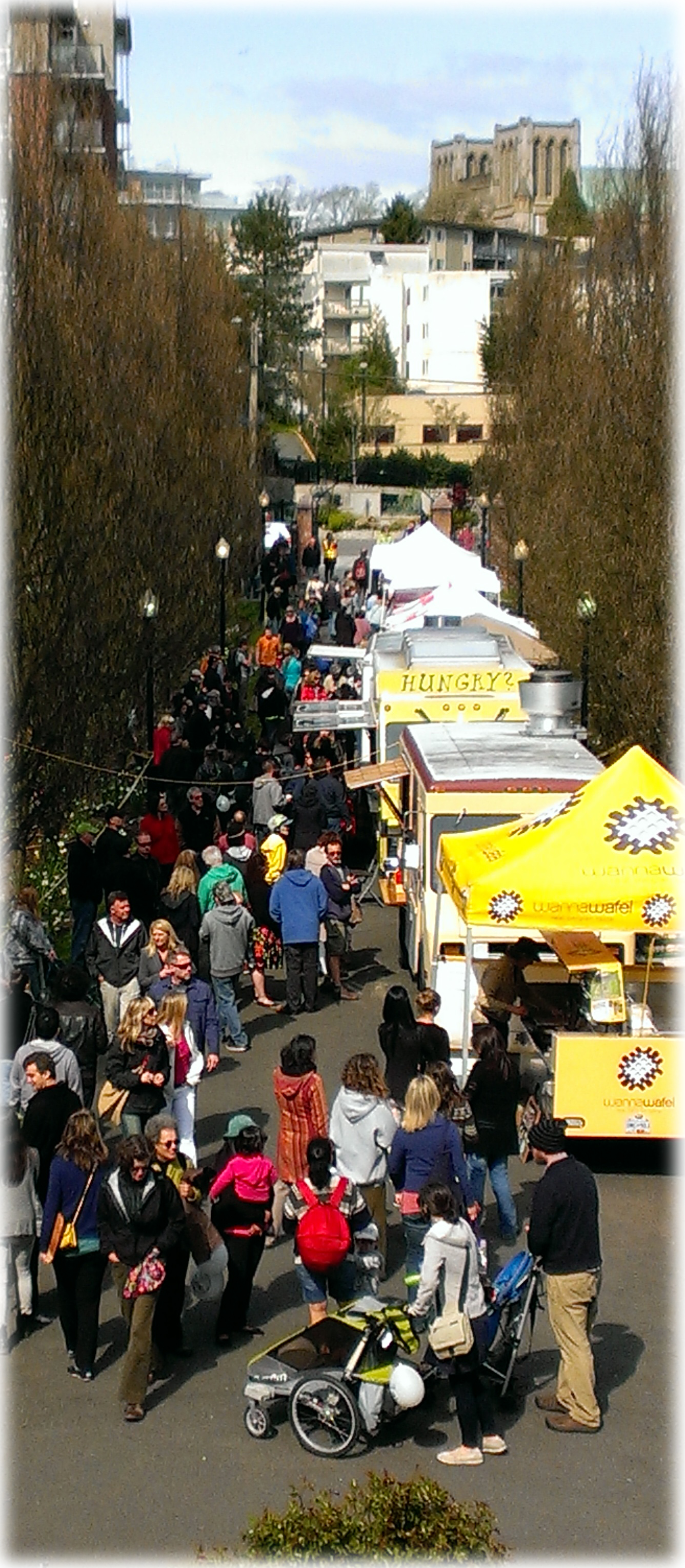
|
- The Centre for Social Innovation (CSI) acts as a community centre for social innovators and provides a platform, the space, relationships and knowledge to accelerate social mission organizations.
- The Port Clements multi-purpose building opened in April 2009, and houses Municipal offices and Council Chambers, a library space shared by both the Vancouver Island Regional Library (public library) and School District #50, a Seniors meeting room / multi-purpose community room, a community kitchen, a daycare room and the Port Clements Elementary School classrooms (K-7).
- Granville Island 17ha in area, was created by the Federal Government approximately 100 years ago by dredging and filling a sandbar in False Creek in the heart of Vancouver, and is currently a space with multiple functions including retail, public markets, performance arts, post-secondary education and public parks.
- Trashed Space. Nina-Marie Lister, associate professor at Ryerson University, creates an argument for reinventing and revitalizing dead space and supports her discussion with a compelling selection of photographs of urban dead space.
- Multi-functional Spaces. Created through a partnership between Community Research Connections and students of Royal Roads University's Professional Communications program, this video explores the roles of multi-functional spaces in communities, specifically by 'unpackaging' the multiple functions of urban community gardens.
|
Cooperatives
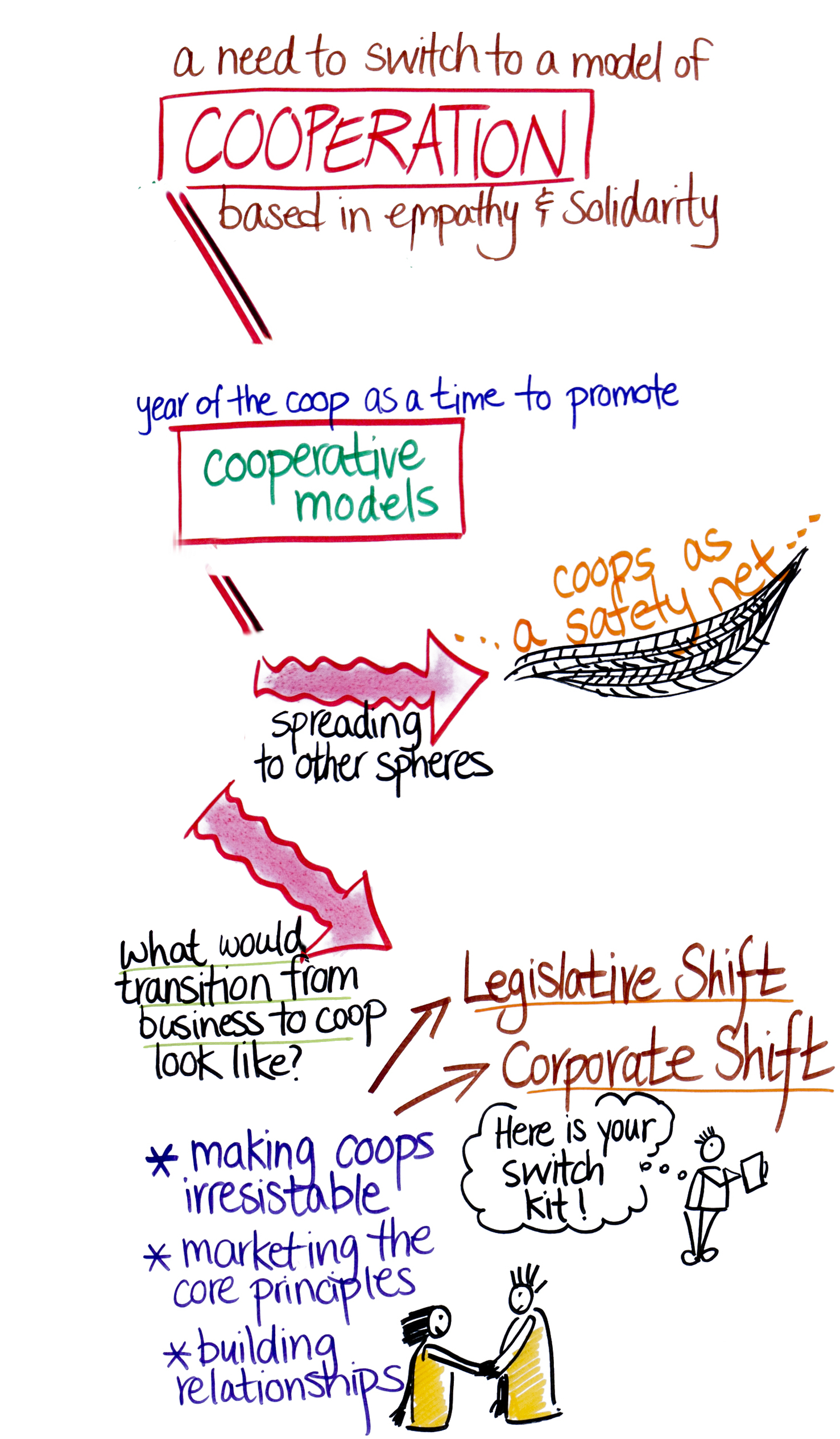
|
- International Cooperative Alliance was established in 1895, and represents cooperatives around the world and the cooperatives movement.
- Vancity is a Vancouver-based credit union that provides advice, technical support, community investment, and financing to enable businesses, co-ops, social enterprises and not-for-profits in co-creating healthy communities and a vibrant local green economy.
- Shift Urban Cargo Delivery is a Vancouver worker co-op that delivers a wide variety of goods in heavy-duty cargo tricycles, replacing delivery trucks for regular trips in the downtown core.
- The Vancouver Tool Library (VTL) is a cooperative tool-lending resource located in on Commercial Street in East Vancouver.
- EnerGreen Builders Co-operative is a worker-owned co-operative committed to building and maintaining high-quality sustainable buildings and endeavours to use environmentally friendly building materials and practices.
- Co-operating for Sustainability is an interactive map produced through the Sustainability Solutions Group that displays and allows users to identify cooperatives around the world.
- The Sharing Project is a multi-staged research project focused on engaging citizens, institutions and organizations in developing Vancouver’s sharing economy.
- Cooperative is an animation that conveys how issues of resource depletion and/or pollution generation arise through people acting in their own self-interest around a common good, i.e., 'the tragedy of the commons' (Hardin, 1968), and how such issues can be addressed through cooperative solutions.
- Cooperatives and Sustainability: An investigation into the relationship is a report that details results of a partnership project, between the Sustainability Solutions Group and Community Research Connections, that investigated the relationship between the cooperative model and sustainable development. The outcomes from this research were presented at the International Cooperatives Alliance (ICA) 2013 Global Conference in Cape Town, and the presentation can be downloaded from here.
|
Mental Health
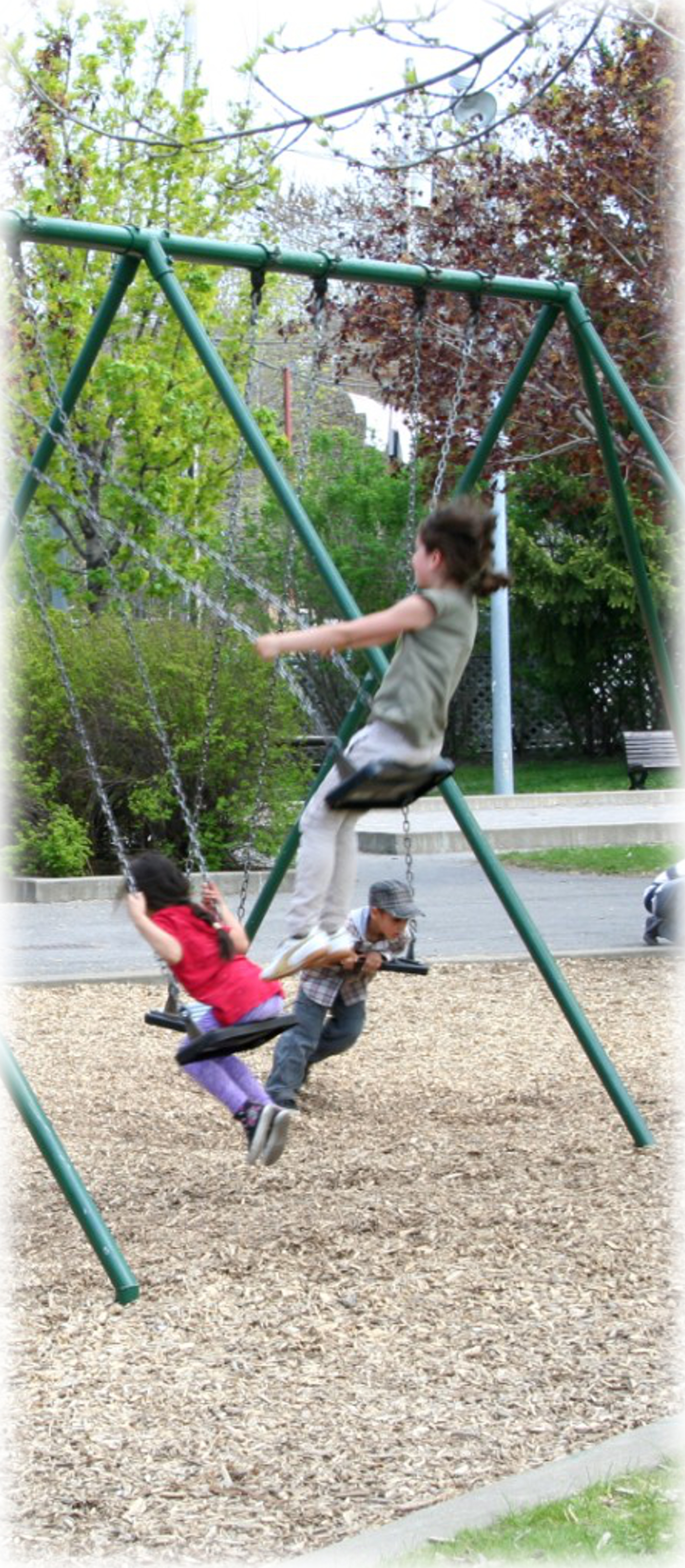
|
- PlanH is a program that supports local government engagement and partnerships across sectors for creating healthier communities by recognizing that community policy, plans, and decisions health and well-being. This section details the importance of parks and greenspace for human health and well-being.
- Trust Us! is an initiative of BC Healthy Communities based in the Gorge-Tillicum area of Victoria that aims to bridge the gap between youth and seniors through a series of dialogues and community projects. This video provides more information on the project, and this video conveys the project's vision.
- This report, entitled Building Healthy Communities at the Intersection of Chronic Disease Prevention and Climate Change, was prepared by BC Healthy Communities and details recommendations for integrated approaches to improving health and equity while preparing for climate change. The report refers mostly to physical health; however, physical health is intimately linked with mental health and issues specific to mental health (such as stress) are addressed.
- This interview with Professor Alejandro R. Jadad, physician, educator, researcher and public advocate, provides insights on living a long, healthy, and happy life, full of love, and with no regrets.
- This article discusses the results of poll commissioned by the Canadian Hospice Palliative Care Association on Canadian preferences in terms of being able to select a location where one receives palliative care.
- Loneliness: Human Nature and the Need for Social Connection is a video featuring Dr. John Cacioppo, Tiffany & Margaret Blake Distinguished Service Professor (University of Chicago), discussing his research on the influence of the social context on human health.
- Head Space is a video created through a partnership between the Community Research Connections program and students of Royal Roads University's Professional Communications program, which was designed as an evocative expression of mental health and community well-being.
|
Rural Revitalization
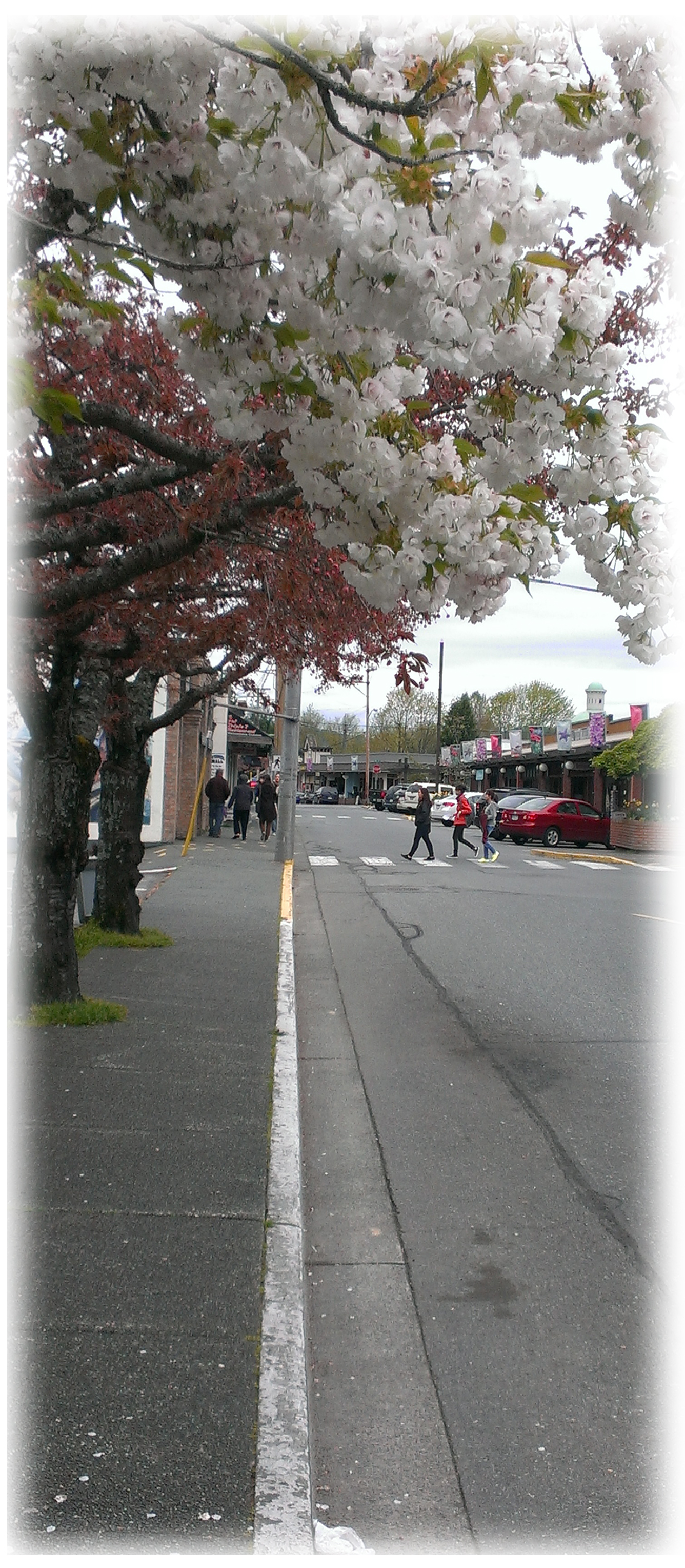
|
- The Rural Policy Learning Commons is a 7-year Partnership project established in 2014 to enhance Canadian prosperity by identifying and analyzing policy options relevant to rural and northern places, evaluating these options in the context of national and international policy innovations, and building leadership capacity among rural and northern researchers, policy-makers, and practitioners.
- The New Rural Economy Project is a research and education program studying rural Canada since 1998. It is a collaborative undertaking bringing together rural people, researchers, policy analysts, the business community, and government agencies at all levels to identify and address vital rural issues
- The website of Dr. Wayne Caldwell, professor in the School of Environmental Design and Rural Development (Rural/Planning ) at the University of Guelph, features a wealth of research and resources on rural development.
- Revitalization is a video created through a partnership between the Community Research Connections program and students of Royal Roads University's Professional Communications program, which explores community revitalization and aims to stimulate thinking on what contributes to thriving, sustainable communities.
|
Waste
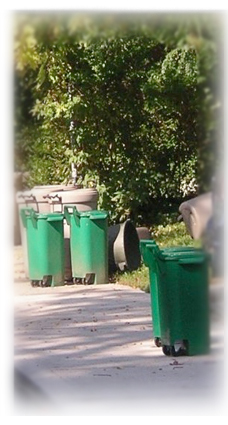 |
- The Cowichan Bio-Diesel Co-operative (CB-DC) is a community owned and operated organization dedicated to the local production, use and promotion of biofuels in order to achieve ethical and environmentally sustainable local economy.
- Cowichan Energy Alternatives (CEA) is a non-profit organization focused on providing energy and greenhouse gas (GHG) emissions inventories and planning services, renewable energy feasibility studies and implementation, and leading community carbon offsetting initiatives through Community Carbon Marketplace (CCM).
- Greasecycle is a worker-owned and operated British Columbia company focused on the production and distribution of sustainable Biodiesel made from Waste Vegetable Oil (WVO).
- The Compost Education Centre (Victoria, BC) encourages composting and conservation through its public education programs, demonstration site, telephone hotline, society memberships and volunteer programs.
- State of Waste Management in Canada summarizes the state of waste management and identifies recent trends, best management practices, challenges and opportunities for waste prevention or reduction, diversion, energy recovery and disposal in Canada.
- This article contains information and videos on Sweden’s waste management successes, in where 99% of Sweden’s garbage is recycled.
|













